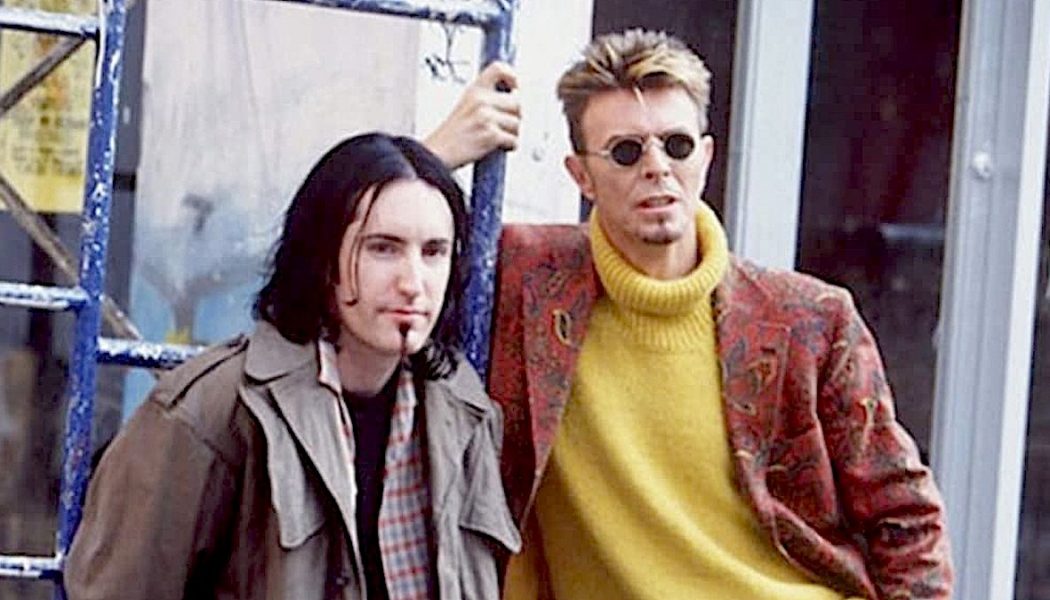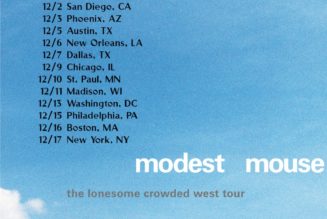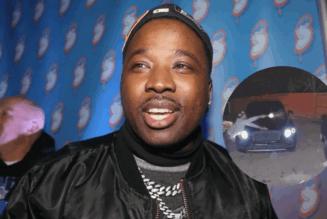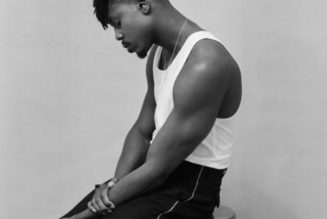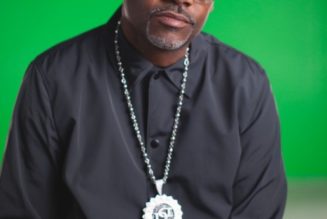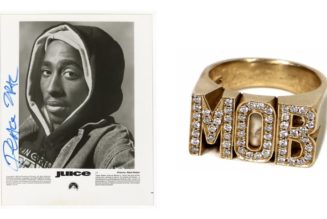
Editor’s Note: We continue our celebration of the life and art of David Bowie with an exclusive new tribute from Trent Reznor. Keep checking back all week for more content reflecting on our favorite Starman. And, if you’ve missed anything, you can experience it all again here.
David Bowie’s impact on fans and musicians transcended definitions of genre, illustrated by the iconic rock chameleon’s influence on industrial heavyweight Trent Reznor. As the Nine Inch Nails mastermind tells Consequence of Sound, having Bowie as both role model and friend helped him through some very dark times.
Nine Inch Nails had the honor of opening for Bowie on “The Outside Tour” in 1995, which saw Reznor and company remaining onstage to perform a handful of songs with Bowie at the beginning of the latter’s headlining set. The two acts would also collaborate on a remix of Bowie’s “I’m Afraid of Americans” that became more popular than the original track.
That said, Bowie’s effect on the NIN frontman dates back much further, with a young Reznor discovering Bowie’s music on his way to becoming a groundbreaking artist himself. What Bowie did for glam rock in the early ’70s, Reznor did for industrial music in the early ’90s — bringing an innovative sound to the mainstream without sacrificing any musical integrity.
Editors’ Picks
As part of our 2020 Composers of the Year feature, we recently spoke with Reznor and his musical collaborator Atticus Ross about their film-scoring careers, particularly the new films Mank and Soul. With the five-year anniversary of Bowie’s death coming up on January 10th, we also asked Reznor to share his thoughts on Bowie’s influence.
Reznor told Consequence of Sound of the impact Bowie made on him as a musician and a friend, as follows:
“I think in terms of chronology, it was the Scary Monsters album that I became aware of Bowie’s music. None of my friends were super-big Bowie fans. But there was something about Scary Monsters. I think it was the Columbia Record Club. I didn’t mail the card back, so the record showed up. I had to spend $8.98 on the album. And in those days, you listened to what you got. I had 20 albums. I’m gonna listen to it whether I like it or not. But it really struck a nerve with whoever I was at that time, and this cold, alien … it really resonated. Then I started moving forwards and backwards in his catalog at that time. And then over the next few years, I had the pleasure of going through Hunky Dory and Ziggy Stardust and Station to Station. He just really started to become the best archetype for someone who has a fantastic voice and was kind of an actor pretending to be a rock star, in a way, which seemed to give him the ability to reinvent himself in ways that just felt like it would take a lot of courage to have had success at something and then throw it away and try something new.
As Nine Inch Nails was birthed, I found myself in the role of starting to accumulate an audience and feeling the weird pressures of someone who didn’t have any money. I was worried about how to pay the $30 gas bill and eating peanut butter for a week. And then suddenly, because I made an album I really liked, I could pay the gas bill. My life was so much better now. Now, it’s time to write a new album. I’d like to try this new stuff, but it’d be nice being able to pay the gas bill. It creeps its way in in various ways. So, I would turn back to the idea of Bowie and think for a minute: ‘F**k, that’s what being an artist is.’ So, there was that kind of influence from a distance, a fan level, aside from the music emotionally connecting with me.
Then, to jump ahead a few years and get a phone call from Bowie saying, ‘I’ve made a strange, new album with Eno that kind of reflects the Berlin era…’ Anytime someone would mention him and ask me questions, I would talk about Low and how much he influenced The Downward Spiral, and maybe it crossed his awareness to where he said, ‘You’re the only band I want to play with us. Would you be up for opening for us on an amphitheater tour?’ F**k, yes. I had just got done saying I couldn’t tour for another … We had just toured for two and a half years, and I was imploding. I needed to get off the road. Then, ‘Hey, would you like to go?’ Yes, when are we leaving? ‘How about in a month?’ Okay, I’m right there.
But then to get to be around him for the extent of that tour and actually see him in person and be terrified and intimidated. And then find an actual human being behind it that did impossibly live up to whatever you projected on him. What really left the biggest impression on me was there I was in a bad state of addiction and kind of going down the toilet. And he was on the other end to have come out of it. And there were the few kind of big brother / fatherly times where he’d call me aside and kind of get on my shit: You need to get your shit together. It doesn’t have to end up down there. He didn’t say this, but look at where he was. He was happy. He was still taking chances.
Nine Inch Nails were at peak popularity at that time. And Bowie wasn’t. Before the tour, he told me: ‘We’re going to go on a tour where we’re not going to play any hits. We’re only going to play this record. Nobody wants to hear that. But I need to do it.’ And I thought, ‘Well, I’m witnessing what I projected this guy to be. I’m watching him do it.’ But would I have the courage to do that? Is that courage? It really left a mark on me.
Anyway, I still think about that dude all the time, and I still listen to him constantly. And I’m grateful that our lives intersected, and I’m grateful for, whether he knew it or not, how much he helped me in those dark times before I chose to get my shit together. And I can hear his voice. He penetrated through the layers of bullshit that I’d built around myself. I’m grateful for that.”
Our thanks to Trent Reznor for sharing his thoughts on David Bowie. See the pair collaborating in the video for “I’m Afraid of Americans” below.
